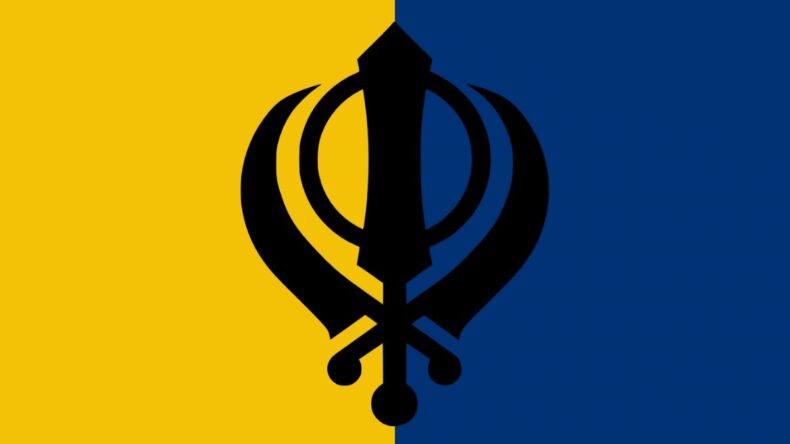In a recent turn of events, a scheduled ‘Khalistan Referendum’ event at a school in Canada has been canceled due to concerns over a poster featuring an AK-47 gun. The originally planned date for the referendum was September 10, and it was intended to be held at Tamanawis Secondary School in Surrey, British Columbia.
Nevertheless, a representative from the Surrey District School Board announced through an official statement that they had decided to cancel the event’s booking at their school due to a breach of their rental agreement. This decision has ignited debates surrounding free speech, political expression, and the ongoing discussions about the Khalistan movement. In this article, we will delve into the details of this cancellation, explore the reasons behind it, and examine the broader implications of such controversies.
THE HISTORY
To gain a better understanding of the Khalistan movement and the perspectives involved, it’s essential to look at the historical context. The Khalistan movement, which advocates for an independent Sikh state in the Punjab region of India, has roots dating back to the 1940s but gained significant attention in the 1980s due to a period of violence and conflict in the Punjab.
The movement has been a source of contention between some members of the Sikh diaspora and the Indian government. While some Sikhs support the idea of Khalistan as a means to protect their religious and cultural identity, others argue for peaceful coexistence within a unified India.
Given this complex background, the cancellation of the school event underscores the challenges in addressing this issue. On one hand, it’s important to allow for open dialogue and freedom of expression, especially in a democratic society like Canada. On the other hand, there are genuine concerns about the potential for such discussions to incite violence or exacerbate tensions.
THE RAMIFICATIONS
Despite multiple efforts to tackle the problem, the event organizers were unsuccessful in removing these troubling images, and materials continued to appear in Surrey and on social media, as mentioned in the press release. Maninder Gill, the president of the Friends of Canada and India Foundation, expressed approval of the decision on behalf of his organisation.
In the preceding week, Indo-Canadians who were deeply troubled by the referendum and the utilization of a government school for such purposes voiced their concerns to the school board. Their grievances centered around the presence of numerous posters featuring Talwinder Singh Parmar, who is widely regarded as the mastermind behind the tragic terrorist bombing of Air India flight 182, commonly known as the Kanishka. This devastating event, which occurred on June 23, 1985, resulted in the loss of 329 lives.
India had previously expressed its discontent to Global Affairs Canada, the nation’s foreign ministry, through an official communication, emphasising its dissatisfaction with the use of Canadian territory for the separatist referendum. Although a specific date for the referendum hasn’t been disclosed, Gurpatwant Pannun, the general counsel for Sikhs for Justice (SFJ), urged pro-Khalistan factions to stage a protest at India’s Consulate in Vancouver on September 8, with the intention of causing disruption.
ALSO READ– Separatism, Security, and Sympathies: Khalistan Movement Makes Global Waves
The cancellation of the ‘Khalistan Referendum’ event at a Canadian school due to concerns over an AK-47 poster has ignited debates surrounding freedom of speech, political expression, and the broader implications of promoting contentious causes. While it’s crucial to respect the right to express political views, it’s equally important to balance this with the responsibility to prevent hate speech, violence, and extremism. Finding this balance remains a challenge in a diverse and multicultural society like Canada, where various perspectives and sensitivities must be considered in shaping public discourse.













